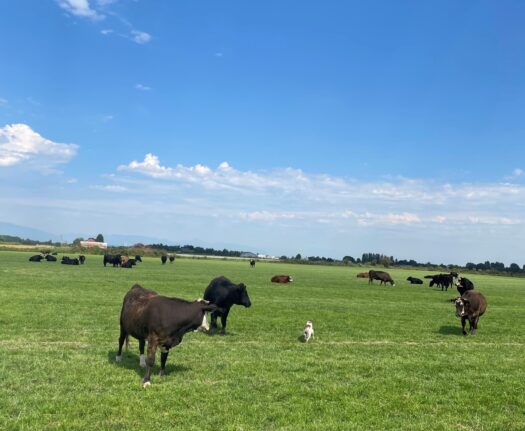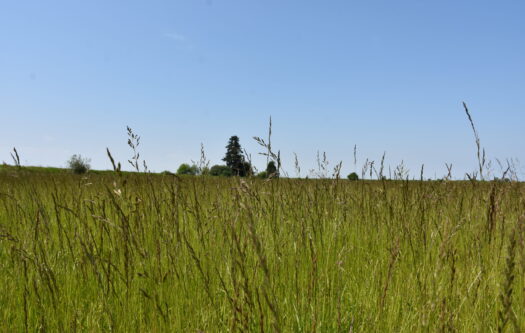Jack Zellweger
Zellweger Farms
DFWT Cover Crop Program helps Zellweger Farms Adapt to Snow Geese
Zellweger Farms on Westham Island has been in the family for three generations. The island is connected to the rest of Ladner, BC by a single-lane, swing bridge that opens and closes multiple times per day to let boats pass up and down the Fraser River.
Jack Zellweger’s 300-acre farm sits at the end of a narrow road with views out over acres of tidal marshes and sandbars, and the Strait of Georgia. The wetlands on the other side of the dykes surrounding Jack’s farm are extremely valuable wildlife habitat, and the transition area between the Fraser River Estuary and some of the Lower Mainland’s most productive and expensive farm land.

Jack and his family have a long history with Delta Farmland and Wildlife Trust (DFWT) – he even served as a Director for a time. “Because the Trust was made up of local farmers and conservationists, it was a relationship. The Trust knew where farmers needed help, and the farmers were sympathetic to the Trust’s goals.”
“Years ago,” Jack explains, “I grew mostly peas and beans for processing. Those crops were done early and we always put in a cover crop of fall rye because it was good for the soil. It helped to reduce ponding in the fields and we called it ‘green manure’ because of all the humus and microorganisms we turned back into the soil in the spring.”
“DFWT’s Cover Crop Program helped with our costs – particularly once the Snow Geese started coming into the fields about 30 years ago. Up until then, they had stayed mostly in the marshes, but as their numbers grew from tens of thousands to hundreds of thousands, they began to come into our fields. They were so hungry they would eat whatever they could find – from weeds to leftover crops – and they could ruin a field in a few days, driving holes six inches deep into the soil to get at the roots of plants.”
While Jack still grows winter cover crops, as local processors have closed down or moved away, he has adapted his main crops. Today, the farm produces seed potatoes and silage corn, with some peas, beans, hay, barley and oats on the side. Zellweger Farms is also home to a herd of beef cattle.

The farm also participates in DFWT’s Grassland Set-Aside (GLSA) Program. Along with providing wildlife habitat and improved soil health, GLSAs like the Zellweger’s also store carbon – just one of the many ecosystem services provided by farms. Studies show that the large root systems of perennial grass fields can store up to 2.7 times more carbon than annual crops, and sequester it deeper into the ground for better, longer-term storage.
When Jack looks to the future of Zellweger Farms, he sees continuing changes to what they will produce and the practices they’ll use. “The nature of farming is that you have to be able to adapt. Things are always changing – from the market to the climate. Programs like DFWT’s help farmers with the costs of adopting sustainable practices that benefit everyone, from improving the soil that grows food for the Lower Mainland, to providing habitat to increase biodiversity.”
How Can You Help?
Your donation will work towards conserving important farmland and wildlife resources contained in the Fraser River delta.
